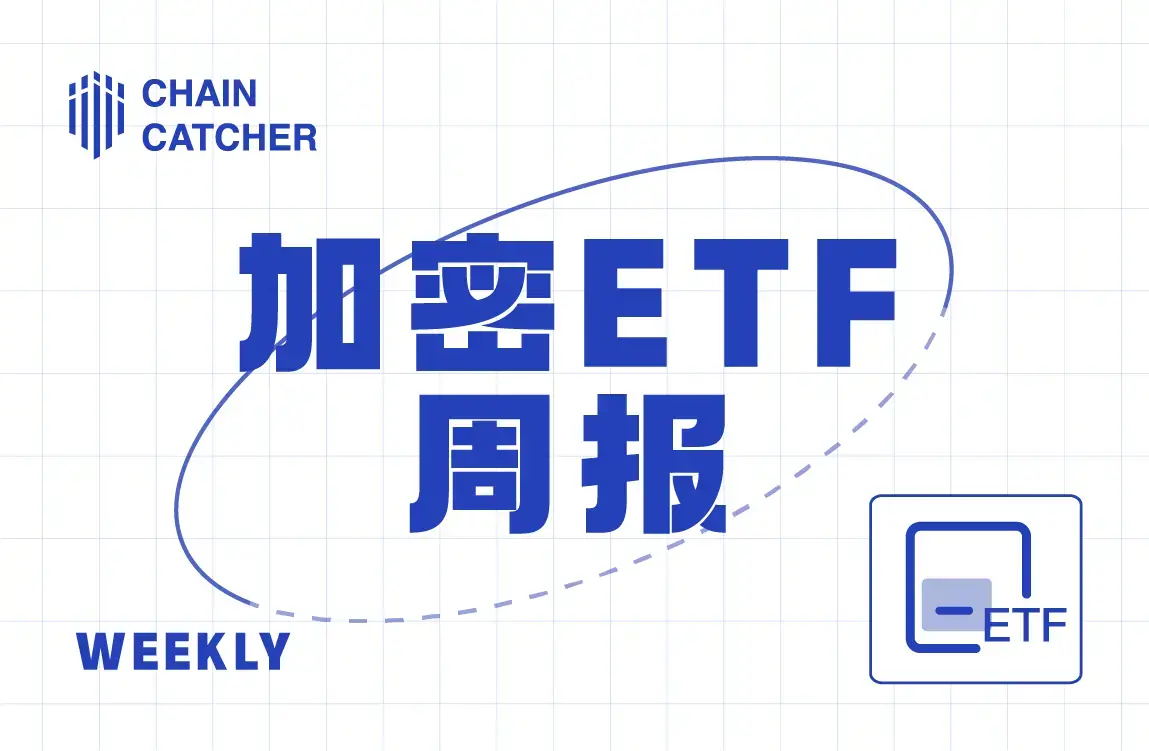继续增持 BTC ! MSTR 资本运作掀起囤币潮,22 家上市公司持币超 1000 个
作者:Arain,ChainCatcher
编辑:念青,ChainCatcher
今晨,比特币终于突破10万美元。
自美国共和党总统候选人特朗普宣布在2024年总统选举中获胜以来,比特币行情摧枯拉朽,终于突破了7万美元/枚-8万美元/枚价格区间,不断刷下历史新高。
一时风头无两。“比特币将成为美国纳入国家战略储备资产之一”似乎成为一种可能。不管这种可能何时落地,公开资本市场闻风而动,已争相宣布购入比特币作为储备资产。
不完全统计,全球有60家左右上市公司持有比特币。据欧科云链研究院数据,自美国大选局势明朗后,美国和日本有 17 家上市公司公布持有或批准比特币作为战略资产。
不同于此前蹭概念热度,用真金白银集中地囤比特币,而不是其他加密数字货币,意味着比特币在主流资本市场的共识正在不断增强。HODL15Capital数据,在全球范围内,目前持币量超1000个比特币的上市公司有22家——如以美元计量,1000个比特币总价值超1亿美元。
其中,最为人称道的是持币量第一的上市公司MicroStrategy,该公司的股价近一年区间涨幅114.52%,市值一度站上千亿美元。
根据12月2日该公司公布的8K文件,该公司还在通过总额420亿美元的融资计划继续增持比特币,使得其持有的比特币数量不断增加。
一、MicroStrategy的无限子弹
12月1日,MicroStrategy 创始人 Michael Saylor 在X 上称表示,基于 HODL15Capital 统计,当前已有 60 家上市公司可以发行股票来购买比特币。这 60 家公司的比特币总持有量为 522,565 BTC。
“发行股票购买比特币”不是当前上市公司囤币的主要策略,MicroStrategy (MSTR)是这波囤币潮中的弄潮儿,并且至今都是全球持有比特币最多的上市公司。
2019年年末,MSTR账上有约5.6亿美元的现金、现金等价物及短期投资。于是在2020 年 8 月,这家主营业务为商业智能软件的开发商开始以闲置的现金购入比特币。首次购入21,454枚比特币,花费2.5亿美元,紧接着,又用了5000万美元继续增持比特币。这个举措在当年看来比特币公关意味更强,而非像今天这样瞩目,主要原因是用现金作弹药,很快就会到用尽的那天——但如果子弹是别人提供的呢?
随后局面被打开,MSTR使用上市公司这个资本运作平台,灵活地玩转于“股-债-币”三者之间,持续对比特币增持——即便在今日跟风者之中寻找,也很难找出一个雷同的剧本。
现在的MSTR将自己定义为比特币财务公司,其股价与比特币走势高度关联。根据其公开的最新8K文件,MSTR目前持有402,100 个比特币,总花费为234亿美元,平均购买成本为 58,263美元/枚。除了少部分闲置资金,MSTR购得比特币的资金来源于以下几个途径:
- 通过美股上市公司特有的Shelf注册,使用ATM发行股权的方式取得约148亿美元融资;
- 通过私募无可转债的方式获得约78亿美元,其中2025年到期总额5亿美元的私募可转债已被转或赎回;
- 私募发行总额5亿美元、年利率125%的优先担保票据(已偿还);
- 2.05亿美元信贷担保(目前1.61亿美元已偿还),其中比特币抵押于2023年3月24日解除。
可以这么说,MSTR的大部分弹药来自于ATM股权发行和私募可转债,其中ATM目前为MSTR提供的弹药最多。
ATM( at-the-market offering),即“按市价发行”,在上市公司提交Shelf招股说明书后,通过指定的经纪商,以现行市场价格逐步向二级交易市场发行同一类别的流通股票,发行人可以控制每次销售的时间和规模,并可以根据需要随时修改,而不需要再提交额外的申请。
这个模式可以灵活筹资,理论上能有效避免传统融资出现的大幅折价发行。目前,MSTR的股价受益于比特币价格表现,ATM也会受益于此,但如果比特币价格下跌,则MSTR的股票投资者利益会受损,一是股票相对于净资产(比特币)价值的溢价可能缩小甚至变为折价,而持续的ATM可能会逐渐侵蚀溢价,导致股价下跌至比特币的实际价值。
MSTR第二大弹药来源是私募可转债,这经常引发市场的担忧。事实上,MSTR发行的可转债都是无担保、优先债,而可转债则意味着投资者在协议中约定的情况下将债券转换为股票,如果大部分投资者选择了“转换”,配合MSTR一贯操作的ATM,MSTR的负债率保持在可控范围内,只是股权可能会被大比例稀释,当然投资者也可以不在约定时间内转换,等到企业以本金、利息赎回债券。
由于附加了认股权证(期权)等多种权益,可转换债券通常票面利率较一般企业债券低。过去,MSTR发行的大部分可转债都有较低利息的票面利率,较高的转换价格:
1、2020年12月公告:发行总金额6.5亿美元的0.750%可转债,到期日为2025年。初始转换价格397.99 美元/股,较发行时A类普通股 289.45 美元/股溢价约 37.5%;
2、2021年2月公告:发行总金额10.5亿美元的0%可转债,到期日为2027年。初始转换价格约 1,432.46 美元/股,较发行时A类普通股 955.00 美元/股溢价约 50%;
3、2024年3月公告,发行总金额为8亿美元的0.625%可转债,到期日为2030年。初始转换价格约 1,497.68 美元的初始转换价格,较发行时A类普通股 1,051.01 美元/股溢价约 42.5%;
4、2024年3月公告,发行总金额为6.038亿美元的0.875%可转债,到期日为2031年。初始转换价格约2337.21美元/股。较发行时A类普通股1662.1999美元/股溢价约40%;
5、2024年9月公告,发行总金额10.1亿美元的0.625%可转债,到期日为2028年。初始转换价格约183.19 美元/股,较发行时A类普通股130.8477 美元/股溢价约 40%;
6、2024年6月公告,发行总金额8亿美元的2.25%可转债,到期日为2032年。初始转换价格约 2,043.32 美元/股,较发行时A类普通股1,513.46 美元/股溢价约 35%;
7、2024年11月公告,发行总额30亿美元0% 可转债,到期日为2029年,初始转换价格约为 672.40 美元/股,较发行时A类普通股433.7997 美元/股溢价55%。
(*上述转换价格均需受反稀释调整。MSTR在2024 年 8 月 1 日执行了1拆10的拆股操作,可以理解为在这个日期前的转换价格/10是调整后的转换价格)
在MSTR往期发布的可转债中,只有2021年2月和今年11月发布的是零息可转债,并且相应的,可转债对应的转换溢价率也较高,比特币也出于价格高位。尤其是2021年2月,比特币事实上已经出于高位下行阶段,紧接着就是两年左右的比特币熊市,而在这熊市期间,MSTR没有发行可转债,而是通过ATM发售股票。
2021年12月至2024年2月是比特币价格较为低迷的时候,也是MSTR股价低迷时期,在期间MSTR依次发售了规模10亿美元、5亿美元(出售部分后中止)、6.25亿美元(出售部分后中止)、7.5亿美元(出售部分后中止)、7.5亿美元、20亿美元的股票。
可见,在往期的操作中,MSTR并非在股价高位时运用ATM这个工具使新股增发获得更理想的价格,相反,股价/比特币行情低迷时更多地会使用股权融资,而股价/比特币行情高涨时则使用可转债融资。这种做法主要是为了控制杠杆水平。
由此可以推演出比特币价格上行/下跌时,MSTR继续融资增持比特币发生的两种情况:
若比特币价格上行,MSTR股价上行,MSTR会使用股、债两种方式融资,这样,债券转换价格更高,ATM定价高位,MSTR可以融到更多钱购入比特币,而杠杆水平不变。
若比特币价格下跌,MSTR股价下跌,暂停可转债融资,使用ATM保证杠杆水平,但ATM定价会受到市场价格影响。极端的情况下,MSTR可以通过发行股票缓解债务压力,或者卖币还债、债券持有人选择转股等等。在这个情形下,只要这个游戏玩得下去,首当其冲的是MSTR股票持有人,其次是债权人。
恰逢今年比特币行情上行,MSTR在三季报披露时宣布了“21/21计划”,即在未来三年通过210亿美元的股权和210亿美元的债券筹集420亿美元购买比特币。目前这个计划已经执行了30亿美元可转债、97亿美元股权。
二、融资买币的游戏继续进行
如今市场对MSTR的矛盾点主要聚集于两点:
一、MSTR在资本市场上玩得飞起,会不会陷入死亡螺旋?
二、MSTR当前价格是否高了?
MSTR现将自己定义为比特币财务公司,事实上其股价锚定的是比特币价格。如前文所述,MSTR有意通过股权融资控制杠杆水平,只要杠杆水平始终控制在合理范围内,且有人入局玩游戏,是可以一直玩下去的。
MSTR现有的债务主要是信用债,不存在爆仓的风险。并且可以推测,大部分私募债的持有人主要锁定的是MSTR股票,而不是5-7年期限较低利息的债券(算上复利就跑输了)。
以2025年到期的这批私募可转债为例。MSTR在今年7月时,对这批可转债进行了结算,调整后转股价为39.8美元/股,这一转股成本(如不计算债权人资金成本)是MSTR的最新股价的十分之一,选择保留债券还是转股不言而喻。最终这批总规模6.5亿美元的可转债,大部分债券持有人选择了转股,MSTR只赎回了30万美元,最终压力转移到了MSTR的股票上。
不管如何,这批债权人从账面上是“赚”的。只要市场参与者能从中继续获得收益,游戏当然可以进行下去。
如果债权人哪天不愿意转换成股票了,希望被赎回,MSTR也可以用现金赎回,极端情况还可以卖币。事实上,MSTR确实卖过比特币,但那是一次“骚操作”:
2022 年 11 月 1 日至 2022 年 12 月 21 日期间,MicroStrategy 通过其全资子公司 MacroStrategy LLC(“MacroStrategy”)以约 4280 万美元现金收购了约 2,395 个比特币,成本约为 17,871 美元/枚;
2022 年 12 月 22 日,MacroStrategy 出售了约 704 枚比特币,现金收益约为 1180 万美元,扣除费用和支出后,平均价格约16,776 美元/枚。
2022 年 12 月 24 日,MacroStrategy 以约 1360 万美元现金收购了约 810 枚比特币,成本价约 16,845 美元/枚,其中包括费用和开支。
虽然这次操作的结果是增持2500个比特币,来回操作反而造成了一些损失。不过,这个操作证明,MSTR持有的比特币并非是永远不卖的。
当然,对于债权人来说最好是通过MSTR的股票赚钱,而不是被赎回,那么股价是一个关键,这就是估值问题。
相比其持有的比特币规模,MSTR原有的软件业务几乎可以忽略不计。如果要给MSTR估值,应当将软件业务、比特币交易业务分别估值加总,然而,今天的软件业务影响很小几乎可以忽略不计,就像很多壳公司那样。
然而对交易比特币的这部分估值不像对基金公司估值那样,因为对于MSTR来说,这既不是代客理财业务,也不是证券经济业务,MSTR股票的持有人可能会因为MSTR不断增持比特币这个行为从中获益。
现在,MSTR持有40.2万个比特币,按比特币最新价格计算,这部分总价值约为402亿美元,而截至发稿,MSTR当前总市值约为823亿美元,总市值是其持有比特币价值的约2倍。如果哪一天,比特币的价格就今天价格基础上翻了一倍或者MSTR比特币持仓量增加一倍,而MSTR市值没有变,总市值/持有比特币价值 的倍率就会变成1倍。
但现在没有坐标轴可以参考,现行的PE、PB都需要同行业来进行对比,且比特币又是一种价格剧烈波动的资产,最终问题又丢回给市场,让市场自行投票。
有意思的是,MSTR的承销商团队最近两年不断壮大,且越来越知名。最初,为其承销私募债和ATM的,有且只有Jefferies LLC(杰富瑞公司)一家。直到2022年9月, Jefferies LLC不再为其承销,Cowen and Company, LLC(属于道明证券集团)和BTIG, LLC成了新的承销商。随着规模的扩大,又或许是因被纳入MSCI 指数,今年8月,在上述两家的基础之上,新的承销商又了进来TD Securities (USA) LLC(道明证券)、Barclays Capital Inc.(巴克莱资本)、The Benchmark Company, LLC、Canaccord Genuity LLC、Cantor Fitzgerald & Co.、Maxim Group LLC、Mizuho Securities USA LLC (瑞穗证券)和 SG Americas Securities, LLC (隶属法国兴业银行)。
值得注意的是,根据MSTR三季报,Capital International Investors、Vanguard Group Inc、Morgan Stanley和Blackrock, Inc还在增持股票,现已依次成为其前四大机构股东。
与上述机构跑步入场形成对比的是一家知名做空机构——香橼资本,于今年11月在X上称MSTR当前的股价过热,“近四年前,香橼是第一个告诉读者 MicroStrategy(MSTR)是投资比特币的终极方式,设定了 700 美元的目标。快进到今天:MSTR 已飙升至 5000 美元以上(调整后)。向 Michael Saylor 具有远见卓识的比特币策略致敬……现在,随着比特币投资变得比以往任何时候都容易,MSTR 的交易量已完全脱离比特币基本面。虽然香橼仍然看好比特币,但我们已通过做空 MSTR 的头寸进行对冲。”
三、上市公司囤币潮:谁会成为下一个MSTR
MSTR 的资本运作术是这波上市公司囤币潮最成功的案例。
在符合监管的框架下,MSTR最先用自己的闲置自有资金购买比特币,在ETF面世之前开辟初了一条合规资金入场的道路,并且为上市公司提供了合规样本。
MSTR在2020年第三季度财报中根据会计准则汇编(“ASC”)350《无形资产——商誉和其他》,将比特币处理为无限期无形资产,按成本法入账,扣除自收购以来发生的任何减值损失。且根据 ASC 820《公允价值计量》非经常性地确定比特币的公允价值,依据是比特币在主要市场的活跃交易所报价,减值损失在减值发生期间被确认为公司合并损益表中的“数字资产减值损失”,而收益会在出售时被记录,且在公司损益表中会以减去任何减值损失后的净额列示。
在MSTR之后,美图秀秀、特斯拉等上市公司开始用自有资金购入比特币。当这些公司开始跟随MSTR一段时间后,美国财务会计标准委员会(FASB)才在2023年12月出台首个加密货币会计规则。
根据 HODL15Capital 统计,目前已有 60 家上市公司购买比特币,其中公布持有比特币数量超过1000个的有22家,MSTR持仓量与其他上市公司相比有着压倒性的数量优势。

但除了MSTR,其他上市公司目前主要以自有资金购买比特币,或者因业务涉及加密数字货币、挖矿等领域而持有比特币。另外,就列表上一些大型公司而言,主营业务占据主导地位,拿出一部分现金投资比特币更像是一种对闲置资金的配置。但对一些主营业务衰弱的中小型上市公司而言,MSTR无疑提供了一个成功的资本运作范本。
在推出比特币战略之前,MSTR还是一个遭受互联网泡沫、常年市值徘徊于10-20亿美元的中小型公司,并且业务规模常年停滞不前,在巨头竞争者面前勉强屈居一隅。在推出比特币战略之后,MSTR摇身一变,不仅“弹药充足”,且被纳入 MSCI 全球标准指数,一度成为千亿美元市值公司。








